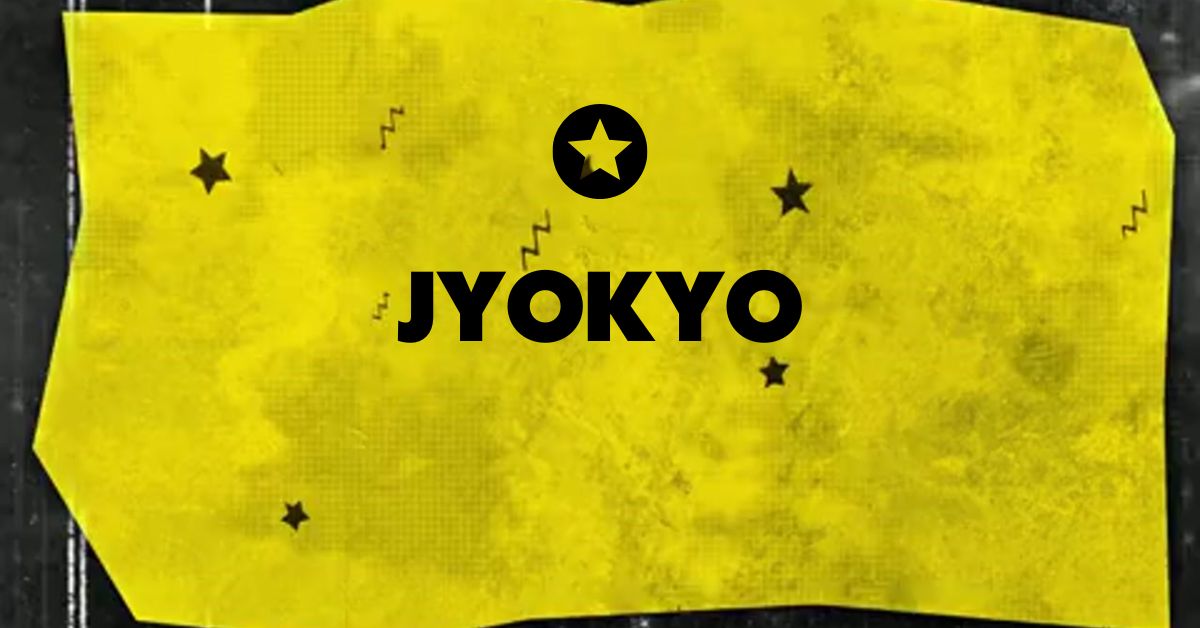General
DGH A Explained: A Deep Dive Into Its Purpose and Impact

DGH A stands for the Directorate General of Hydrocarbons – A. It’s a government-associated body often referenced in relation to India’s energy policy. Though not commonly known by the public, it plays a critical role in the regulation, promotion, and supervision of the oil and natural gas sectors in India. It ensures that exploration and production (E&P) operations meet environmental and economic standards while aligning with national energy strategies.
Origin and Formation of DGH A
DGH A was established by the Ministry of Petroleum and Natural Gas (MoPNG) as a technical arm to handle upstream activities in India’s oil and gas sector. Formed in 1993, this body was developed to act independently and support the government’s strategic needs while managing private and public E&P operations across the country.
Why DGH A Was Created
India needed a regulatory structure that could manage the growing interest in oil and gas exploration. Before DGH A, oversight was fragmented and lacked the technological depth necessary for large-scale projects. DGH A filled this gap by providing a central body to ensure that contracts were honored, environmental rules followed, and resources extracted efficiently.
DGH A’s Core Responsibilities
The DGH A’s primary duty is to oversee exploration and production activities. This includes approving work plans, monitoring reservoir performance, ensuring proper data management, and evaluating technical proposals from private or public sector operators. The body also supports policy formulation for optimal exploitation of hydrocarbon resources.
Licensing and Regulation
One of DGH A’s significant roles is the supervision of licensing rounds. It ensures transparent bidding under policies like the Open Acreage Licensing Policy (OALP) and the Hydrocarbon Exploration and Licensing Policy (HELP). It reviews technical capability, financial standing, and proposed work plans before licenses are granted.
Ensuring Environmental Compliance
With the oil and gas sector having potential environmental risks, DGH A plays an active role in ensuring that projects are conducted responsibly. It reviews environmental impact assessments, demands pollution control measures, and holds operators accountable for any environmental violations.
DGH A’s Role in Data Management
DGH A is India’s central repository for upstream oil and gas data. It manages National Data Repository (NDR), where geological, geophysical, and well data are stored. This data plays a vital role in decision-making and helps global investors analyze exploration opportunities in India.
DGH A and Foreign Investment
By creating a transparent and accountable system, DGH A has been crucial in attracting foreign direct investment (FDI). International companies trust the regulatory framework DGH A provides, knowing that it balances investor interests with national priorities and legal safeguards.
Impact on National Energy Security
DGH A contributes directly to India’s energy security by ensuring domestic oil and gas production is optimized. By facilitating faster approvals and better contract management, it helps reduce dependence on imports. In a country where energy demand is consistently rising, this role cannot be overstated.
Collaborations with Other Agencies
DGH A often works in tandem with Indian agencies like ONGC, Oil India, and international energy consultants. These partnerships help enhance policy, technology transfers, and cross-border project evaluations, strengthening the Indian energy framework overall.
Digital Transformation and DGH A
In recent years, DGH A has shifted much of its operations to digital platforms. Through its e-governance initiatives like ePMS (electronic Project Monitoring System), it has improved transparency and speed of approvals. Digital tools also enable better monitoring of operator performance and contract compliance.
Challenges Faced by DGH A
Despite its success, DGH A faces challenges like bureaucratic red tape, delays in inter-ministerial coordination, and resistance from powerful energy lobbies. Environmental activists also pressure the organization to strengthen compliance requirements and increase transparency.
DGH A’s Contribution to Energy Transition
As India transitions to greener energy, DGH A is pivoting toward more sustainable practices. It encourages the adoption of cleaner technologies in upstream activities and supports projects that align with India’s net-zero ambitions. This shows a significant shift from just being a hydrocarbon watchdog to a sustainability partner.
Training and Capacity Building
DGH A also focuses on skill development in the energy sector. It organizes technical workshops, data interpretation programs, and international conferences to share knowledge. This upskilling helps India keep pace with global advancements in exploration technologies.
Future Prospects of DGH A
With India aiming to become a $5 trillion economy, energy needs will skyrocket. DGH A is expected to play an even larger role by streamlining new licensing rounds, encouraging deep-water exploration, and fostering innovation. Its continued evolution will determine how effectively India can meet future energy goals.
Conclusion
DGH A might not be a household name, but its impact on India’s energy landscape is profound. From regulating exploration to managing massive datasets and ensuring environmental compliance, DGH A is the quiet force behind India’s ambitious energy roadmap. As we head into an era of renewables and digital governance, its adaptability and strategic relevance will shape how energy is explored, produced, and consumed across the subcontinent.
FAQs
What does DGH A stand for?
DGH A refers to the Directorate General of Hydrocarbons – A, a technical body under the Ministry of Petroleum and Natural Gas responsible for overseeing oil and gas exploration activities in India.
How does DGH A support foreign investment?
By ensuring transparency and legal structure in licensing and project approvals, DGH A builds investor confidence and supports foreign companies looking to operate in India’s upstream energy sector.
What is the National Data Repository?
The National Data Repository (NDR) is a digital database managed by DGH A containing geological and geophysical data critical to oil and gas exploration activities.
Is DGH A involved in sustainability?
Yes, DGH A promotes cleaner technologies and sustainable exploration practices in alignment with India’s climate goals and energy transition strategies.
What policies does DGH A implement?
DGH A executes several policies like the Hydrocarbon Exploration and Licensing Policy (HELP) and the Open Acreage Licensing Policy (OALP) to streamline energy exploration and production.
General
Jyokyo: Mastering Situational Awareness

In a world that moves at an ever-accelerating pace, the ability to truly understand and navigate the moment is a rare and powerful skill. We often find ourselves operating on autopilot, reacting to events without a deep comprehension of the underlying currents at play. This is where the ancient yet profoundly relevant Japanese concept of jyokyo offers a critical lens for modern living. It translates to “situation” or “circumstance,” but its meaning carries a much deeper nuance than these simple English equivalents suggest. Jyokyo is not just about recognizing what is happening around you; it is about perceiving the interconnected web of relationships, unspoken rules, and subtle energies that define any given context. Mastering this form of heightened awareness can transform your effectiveness in everything from business negotiations to personal relationships.
What is the Deeper Meaning of Jyokyo?
Jyokyo transcends the basic definition of a situation. It represents a holistic understanding of the entire field of play, including the visible elements and the invisible forces that influence them. This encompasses the physical environment, the social dynamics between people, the cultural norms in effect, and even the emotional atmosphere of a space. In practice, jyokyo means reading the room with an almost intuitive depth, perceiving what is not being said as clearly as what is. It is the foundation upon which appropriate and effective action is built. Without a clear grasp of jyokyo, any move you make risks being out of sync, potentially causing friction or missed opportunities. It is the essential first step in any form of meaningful interaction or strategy.
The Three Core Components of Awareness
To fully grasp jyokyo, it helps to break it down into three interconnected layers of perception. The first is Environmental Awareness, which involves noticing the physical setting, the non-verbal cues of others, and the overall mood. The second is Relational Awareness, which requires understanding the hierarchy, history, and unspoken bonds between the people involved. The third is Temporal Awareness, a keen sense of timing and flow, knowing when to act and when to remain still. These components are not separate; they continuously inform one another, creating a dynamic and fluid understanding of the present moment. Developing jyokyo means training yourself to consciously process all three layers simultaneously, moving beyond a superficial view of your circumstances.
How Jyokyo Differs from Simple Observation
The critical difference between jyokyo and mere observation lies in engagement and interpretation. Observation is a passive act of collecting data points; you see that someone is frowning, or you note the formal seating arrangement in a meeting. Jyokyo, however, is an active process of synthesis and meaning-making. It asks why that person is frowning in this specific context and what the formal arrangement implies about power dynamics. It connects the dots between all the observed elements to form a coherent narrative of the situation. This deeper reading allows you to anticipate potential outcomes and understand the true nature of the interactions happening around you, rather than just their surface appearance.
Applying Jyokyo in Professional Environments
The business world is a perfect arena for the application of jyokyo. Walking into a negotiation with a deep understanding of the other party’s pressures, cultural background, and non-verbal communication styles provides a significant advantage. It allows you to frame your proposals in a way that resonates with their specific context and concerns. In leadership, jyokyo enables a manager to sense team morale, identify unspoken conflicts, and address issues before they escalate. It informs everything from how you run a meeting to how you craft an email, ensuring your communication is always context-aware. A professional with strong jyokyo is often seen as perceptive, empathetic, and strategically astute.
Cultivating Jyokyo Through Mindful Practices
Developing a sharper sense of jyokyo is a skill that can be honed with consistent practice. It begins with cultivating a state of mindful presence, pulling your attention away from internal chatter and fully immersing it in the current environment. Simple exercises like actively listening without planning your response, or people-watching to guess relationships and moods, can build your perceptual muscles. Before entering any new situation, take a moment to pause and absorb your surroundings consciously. Ask yourself questions about the dynamics you see. With time, this practice shifts from a deliberate exercise to a natural and integrated part of how you operate, sharpening your jyokyo in all aspects of life.
The Role of Jyokyo in Effective Communication
When you operate with a strong sense of jyokyo, your communication becomes exponentially more effective. You naturally tailor your message, tone, and delivery style to fit the person and the moment. You know when to be direct and when to be subtle, when to use data and when to appeal to emotion. This contextual awareness prevents misunderstandings and builds deeper rapport because people feel you are truly speaking their language and understanding their position. Jyokyo tells you what needs to be said and, just as importantly, what is better left unsaid. It is the bedrock of tact, diplomacy, and genuine connection, ensuring that your words land with the intended impact.
Avoiding Social Friction with Situational Insight
A primary benefit of jyokyo is its power to prevent unnecessary social friction. By accurately reading a situation, you can avoid actions or comments that might be culturally insensitive, emotionally triggering, or simply inappropriate for the setting. It allows you to navigate complex social hierarchies and unspoken rules without causing offense. For instance, understanding the jyokyo of a family gathering might prevent you from bringing up a contentious topic, thereby preserving harmony. This ability to maintain smooth interpersonal relations is highly valued in many cultures and is a hallmark of social and emotional intelligence, all stemming from a mastered awareness of context.
Jyokyo as a Strategic Advantage in Negotiation
In any negotiation, information is power, and jyokyo is the process of gathering the most crucial information about the human and situational elements of the discussion. It goes beyond the numbers on a spreadsheet to include the other party’s body language, their perceived pressure points, and their underlying interests. A negotiator with strong jyokyo can detect hesitation, identify true decision-makers, and sense when the other side is nearing its limit. This allows for strategic pauses, well-timed concessions, and persuasive arguments that are perfectly aligned with the flow of the discussion. This situational mastery often leads to more sustainable and agreeable outcomes for all involved.
The Connection Between Jyokyo and Emotional Intelligence
Jyokyo and emotional intelligence are deeply intertwined, yet they are not the same. Emotional intelligence focuses on recognizing and managing your own emotions and those of others. Jyokyo expands this into a broader situational radar that includes emotional data as one key input among many. Your EQ helps you recognize that a colleague is anxious; your jyokyo helps you understand why they are anxious in this specific meeting and how that anxiety interacts with the power dynamics and goals of the group. Together, they form a complete package of interpersonal effectiveness, allowing you to navigate both the internal emotional landscape and the external situational field with grace and skill.
Building a Personal Practice for Daily Life
Integrating jyokyo into your daily life does not require dramatic changes, but rather a shift in attention. Start small by dedicating your full attention to everyday interactions, like ordering coffee or chatting with a neighbor. Practice active listening in conversations, focusing completely on the speaker without distraction. After any significant event, take a moment to reflect on the various layers of the jyokyo you experienced. What was the energy in the room? What was not being said? Over time, this reflective practice solidifies your learning. The goal is to make this heightened awareness your default state, turning the conscious practice of jyokyo into an unconscious competence.
Common Barriers to Clear Perception
Several common barriers can cloud our perception of jyokyo. Our own preconceived biases and assumptions often act as filters, causing us to see what we expect to see rather than what is actually there. Strong emotions like anger or excitement can also narrow our focus, blinding us to important contextual clues. Multitasking and digital distractions are modern enemies of awareness, fragmenting our attention and pulling us out of the present moment. To improve your jyokyo, you must first learn to identify these barriers in yourself. Cultivating a habit of pausing to check your assumptions and quiet your internal noise is a vital step toward seeing any situation with greater clarity.
Conclusion
Jyokyo is far more than a word for situation; it is a sophisticated framework for engaging with the world intelligently and empathetically. It challenges us to move beyond a superficial understanding of our circumstances and to perceive the rich, complex tapestry of factors that influence every moment. By developing this skill, we enhance our decision-making, improve our communication, and deepen our connections with others. In both personal and professional realms, the mastery of jyokyo provides a undeniable advantage, guiding us to act in harmony with our environment rather than against it. This ancient concept remains a profoundly modern tool for navigating the complexities of contemporary life with wisdom and grace.
Frequently Asked Questions
What is a simple definition of jyokyo?
Jyokyo is a Japanese concept meaning a deep, holistic understanding of a situation, including its social, environmental, and emotional context.
How can I improve my jyokyo in daily life?
Practice active listening and mindful observation, paying close attention to non-verbal cues and the overall atmosphere in any situation.
Is jyokyo the same as cultural awareness?
Cultural awareness is a crucial part of jyokyo, but jyokyo encompasses all aspects of a situation, including immediate social dynamics and temporal factors.
Why is jyokyo important in leadership?
It allows leaders to accurately gauge team morale, anticipate challenges, and communicate in a way that is perfectly aligned with the current context.
Can jyokyo be learned, or is it innate?
Jyokyo is a skill that can be developed by anyone through deliberate practice and a commitment to being more present and observant.
General
Ava Nickman: Redefining Modern Creativity

Ava Nickman has emerged as a distinctive voice in a crowded digital landscape, captivating audiences with her unique blend of authenticity and polished creativity. Her journey is not one of overnight fame but of consistent evolution, reflecting the changing nature of online influence itself. By seamlessly merging various artistic disciplines, she has built a platform that feels both aspirational and deeply relatable. This multifaceted approach is what sets her apart from countless others vying for attention. Understanding her rise offers valuable insights into the future of digital content creation. It is a story about building a brand that is both a business and a personal manifesto.
Who is Ava Nickman?
Ava Nickman is a contemporary content creator and digital entrepreneur known for her work across multiple creative domains, including lifestyle, design, and personal development. She represents a new class of influencer who operates as a holistic storyteller, weaving together narratives about home, work, and identity. Her platform serves as a curated gallery of her life and interests, attracting a community that values intentional living and aesthetic sensibility. Rather than confining herself to a single niche, she has mastered the art of the personal brand, where her unique perspective is the unifying thread. This strategy has allowed her to cultivate a dedicated following and forge partnerships with brands that align with her refined vision.
The Core of Her Creative Philosophy
At the heart of Ava Nickman’s work is a commitment to intentionality and purpose-driven creation. She approaches each project, whether a social media post or a collaborative campaign, with a clear sense of narrative and visual cohesion. Her philosophy seems to reject the chaotic and ephemeral nature of viral content in favor of building a lasting, meaningful body of work. This is evident in her meticulous attention to detail, from color palettes to the cadence of her communication. She advocates for a slower, more considered approach to both content consumption and production. This mindful methodology resonates deeply with an audience seeking substance over sheer volume.
Building a Connected Community Online
Ava Nickman’s success is deeply rooted in her ability to foster a genuine sense of community among her followers. She transcends the traditional broadcaster-audience dynamic by actively engaging in conversations and making her community feel seen and heard. This is not a one-way street but a collaborative space where feedback is valued and incorporated. She often shares insights into her creative process, inviting her audience behind the curtain and making them invested in her journey. This level of transparency builds trust and loyalty that goes beyond superficial metrics. The community isn’t just an audience; it’s an integral part of the Ava Nickman ecosystem.
Her Multifaceted Approach to Content
What truly defines the Ava Nickman brand is its refusal to be pigeonholed into a single category. Her content portfolio is a dynamic mix that might include interior design tips, professional development advice, and personal vignettes. This diversity keeps her platform fresh and engaging, appealing to the many facets of her audience’s own lives. She demonstrates how modern creators can be generalists without losing their core identity, so long as every piece of content is filtered through their unique lens. This approach also provides her with multiple revenue streams and partnership opportunities. It is a strategic embodiment of the whole being greater than the sum of its parts.
Key Collaborations and Brand Partnerships
Ava Nickman’s discerning approach extends to her collaborations, which are characterized by a clear alignment with her personal brand and values. She partners with companies and projects that feel like a natural extension of her own content, ensuring authenticity for her audience. These partnerships are often presented as curated discoveries or personal recommendations rather than traditional advertisements. This selective process protects the trust she has built with her community while demonstrating the commercial viability of a principled approach. Her work with brands is less about endorsement and more about co-creation, resulting in campaigns that are both effective and artistically coherent.
The Business Behind the Brand
Beyond the curated visuals and engaging posts, Ava Nickman is a savvy entrepreneur who has built a sustainable business from her personal brand. She has successfully monetized her influence through a diversified strategy that includes sponsored content, affiliate marketing, and potentially her own product lines or digital offerings. This business acumen allows her to maintain creative independence and make strategic decisions that prioritize long-term growth over short-term gains. She understands her metrics, her audience demographics, and her market value, operating as both the creative director and CEO of her own enterprise. Her career is a blueprint for turning a personal passion into a profitable profession.
Navigating the Challenges of Digital Life
Like any public figure, Ava Nickman undoubtedly faces the pressures and challenges inherent to a life lived online. This includes navigating audience expectations, dealing with the constant demand for new content, and maintaining a boundary between public and private life. Her ability to manage these pressures while presenting a cohesive brand is a testament to her resilience and strategic planning. She likely employs careful time management and digital detoxes to preserve her mental well-being and creative energy. This balanced approach is crucial for longevity in an industry known for its high rates of burnout.
The Evolution of Her Personal Style
Ava Nickman’s personal aesthetic is a key component of her brand identity, serving as a visual language that communicates her values. Her style, whether in fashion, interior design, or graphic composition, tends to lean towards a refined yet approachable elegance. It often features a neutral palette, clean lines, and thoughtful compositions that evoke a sense of calm and intention. This consistent visual identity makes her content instantly recognizable in a crowded feed. Her style is not static but evolves organically, allowing her audience to grow alongside her while maintaining that core sense of authenticity they connected with initially.
Lessons from the Ava Nickman Playbook
There are several actionable lessons aspiring creators can learn from studying the rise of Ava Nickman. First is the power of consistency, not just in posting frequency, but in maintaining a coherent brand voice and aesthetic. Second is the importance of valuing community engagement over mere follower count, building a loyal tribe that actively participates. Third is the strategic advantage of being a multifaceted creator, which allows for adaptability in a changing market. Finally, her career underscores the necessity of blending artistic vision with business savvy. She exemplifies that sustainable success is found at the intersection of passion and strategy.
The Lasting Impact of Ava Nickman
Ava Nickman’s influence extends beyond her immediate follower count, signaling a shift towards more thoughtful and integrated personal branding. She has demonstrated that it is possible to build a successful career by prioritizing quality, authenticity, and community over quick viral hits. Her journey offers a roadmap for the next generation of creators who seek to build something lasting and meaningful. As the digital landscape continues to evolve, the principles she embodies—intentionality, multifaceted creativity, and genuine connection—are likely to become even more valuable. Ava Nickman is not just a content creator; she is a curator of a modern creative lifestyle.
Frequently Asked Questions
What is Ava Nickman known for?
Ava Nickman is known for her work as a content creator and digital influencer, focusing on lifestyle, design, and intentional living.
How did Ava Nickman build her audience?
She built her audience through a consistent, authentic brand voice, high-quality content, and active, genuine community engagement.
What makes Ava Nickman’s approach unique?
Her unique approach lies in blending multiple creative disciplines into a cohesive personal brand centered on mindfulness and aesthetic intention.
Does Ava Nickman collaborate with brands?
Yes, she selectively partners with brands that align with her values and aesthetic, focusing on authentic co-creation rather than straightforward promotion.
What can aspiring creators learn from her?
Aspiring creators can learn the importance of consistency, community building, diversifying content, and combining creative passion with business strategy.
General
Babybelletje: Your Ultimate Snacking Companion

There is something uniquely satisfying about peeling back the bright red wax from a small, round cheese and popping it into your mouth. That simple pleasure is at the heart of the babybelletje experience, a snack that has become a staple in lunchboxes and pantries around the globe. Originally crafted in France, this miniature cheese is more than just a tasty treat; it is a symbol of convenience and quality. Each babybelletje is individually wrapped, making it perfectly portable for busy days, family outings, or a quick protein boost. Its mild, creamy flavor appeals to both children and adults, bridging the gap between health-conscious eating and sheer enjoyment. Understanding the story and versatility behind this little cheese can help you appreciate it even more.
What Exactly is Babybelletje?
At its core, a babybelletje is a small, semi-hard cheese that is best known for its distinctive wax coating and round shape. It is essentially a miniature version of a traditional Dutch-style cheese, offering a smooth and slightly salty taste that is not too overpowering. The cheese itself is made from pasteurized milk, which gives it a consistent texture and a reliable shelf life. What truly sets the babybelletje apart is its practical packaging; each cheese is encased in a colorful wax shell that protects it from air and moisture, ensuring freshness until you are ready to eat. This clever design makes it an ideal snack for people who are always on the move, without the need for additional containers or refrigeration for short periods. The brand has also expanded to include several varieties, including a light version and different flavors, catering to diverse palates and dietary preferences.
The Origins of Babybelletje
The story of babybelletje begins in the 1950s with the French cheese company Bel Group, which sought to create a cheese that was both delicious and highly portable. Inspired by the traditional Dutch Edam cheese, they developed a smaller, snack-sized version that could be easily enjoyed anywhere. The introduction of the wax coating was a revolutionary step, as it allowed the cheese to stay fresh without refrigeration for longer than most other dairy products. This innovation quickly made babybelletje a favorite across Europe before it gained popularity in North America and other parts of the world. Over the decades, the brand has maintained its commitment to quality while adapting to modern tastes, introducing new flavors and healthier options. Today, it stands as a testament to how a simple idea can transform everyday snacking.
Nutritional Benefits of Babybelletje
One of the key reasons for the enduring popularity of babybelletje is its impressive nutritional profile. Each small cheese is a good source of protein and calcium, essential for muscle maintenance and bone health, making it a smart choice for active individuals and growing children. With relatively low calories per piece, it fits well into balanced diets, including those aimed at weight management or mindful eating. The cheese also provides important vitamins like Vitamin B12, which supports energy levels and neurological function. For those monitoring their intake, the light version of babybelletje offers reduced fat content while retaining the same great taste and nutritional benefits. Incorporating this snack into your routine can help you meet daily dairy requirements in a fun and effortless way.
How Babybelletje is Made
The production of babybelletje is a careful process that balances tradition with modern technology. It starts with high-quality pasteurized milk, which is cultured and coagulated to form curds before being pressed into its iconic round shape. After the initial formation, the cheeses are brined briefly to enhance flavor and then left to mature for a specific period, developing their characteristic texture. The most distinctive step involves dipping each cheese into molten wax, which creates a airtight seal around the product. This wax coating is not only functional but also adds a playful element with its vibrant colors, often red for the original version. Quality control is paramount throughout, ensuring every babybelletje that reaches the consumer is safe, fresh, and delicious. This meticulous approach guarantees consistency in every bite.
Creative Ways to Incorporate Babybelletje into Your Diet
While babybelletje is perfect on its own, it can also be a versatile ingredient in various dishes. Try melting it over vegetables or into sauces for a creamy, rich flavor that enhances simple recipes. You can slice it into salads for an extra protein punch or use it as a topping for homemade pizzas and flatbreads. For a fun appetizer, stuff small babybelletje pieces into dates or wrap them in prosciutto for a sweet and savory combination. If you are feeling adventurous, incorporate it into stuffed chicken breasts or mix it into mashed potatoes for a delightful twist. These ideas show how this little cheese can elevate everyday meals without requiring much time or effort.
Why Babybelletje is a Hit with Children
Children are naturally drawn to babybelletje because of its fun size, bright packaging, and mild taste that is not too strong for young palates. The act of unwrapping the wax coating turns snack time into a playful activity, encouraging kids to engage with their food in a positive way. Parents appreciate that it is a wholesome option free from artificial flavors and preservatives, providing essential nutrients for growth and development. Its portability means it can be tossed into school lunches or taken to the park, making it a reliable choice for busy families. The cheese’s firm texture also makes it less messy than many other snacks, which is always a bonus. Ultimately, babybelletje helps foster healthy eating habits from an early age.
How Babybelletje Stacks Up Against Other Cheese Snacks
When compared to other cheese snacks like string cheese or cubed varieties, babybelletje holds its own due to its unique protective wax coating and rich flavor. The wax seal means it often stays fresher longer than unpackaged alternatives, which can dry out or become contaminated easily. In terms of nutrition, it typically has a similar protein and calcium content but may have a slightly different fat profile depending on the type you choose. The individual wrapping also makes it more convenient for portion control and on-the-go consumption than bulk cheese options. While taste is subjective, many people prefer the creamy consistency of babybelletje over the stringier texture of mozzarella-based snacks. This makes it a standout option in the crowded dairy aisle.
Sustainability and Babybelletje
The producers of babybelletje have made significant strides in sustainability, focusing on reducing environmental impact through better packaging and sourcing. Recently, they have been exploring ways to make the wax coating more eco-friendly or recyclable, addressing concerns about plastic waste. The company also prioritizes responsible sourcing of milk, often partnering with farms that adhere to animal welfare and environmental standards. Efforts to minimize water and energy use during production are part of their broader commitment to a greener future. Consumers can contribute by properly disposing of the wax and supporting brands that prioritize sustainability. Choosing babybelletje can be a small step toward more conscious eating habits.
Fun Facts About Babybelletje
Many people do not know that the iconic red wax used on babybelletje is not just for show; it serves a crucial purpose in preserving the cheese’s freshness and flavor. The brand once ran a memorable advertising campaign featuring a character named Waxie who highlighted the fun of unwrapping the cheese. Over the years, babybelletje has spawned various limited edition colors and flavors, sometimes tied to charitable causes or seasonal events. In some regions, you can find mini babybelletje versions that are even smaller, perfect for tiny hands or light snacking. The cheese has also made appearances in popular culture, including TV shows and movies, cementing its status as a recognizable snack. These tidbits add an extra layer of charm to an already beloved product.
Where to Buy Babybelletje
Finding babybelletje is relatively easy, as it is widely available in most supermarkets, grocery stores, and club warehouses across many countries. Look for it in the dairy or cheese section, often near other specialty or packaged cheese products. Many online retailers and delivery services also stock various flavors of babybelletje, making it convenient to order in bulk from the comfort of your home. If you are having trouble locating it, check the store’s app or website for availability, or ask a staff member for assistance. Prices can vary based on the retailer and package size, so comparing options can help you get the best value. Keeping an eye out for sales or multipacks can make this snack even more affordable.
Conclusion
In a world where convenience often compromises quality, babybelletje stands out as a snack that delivers on both fronts. Its simple yet clever design, combined with a delicious taste and solid nutritional benefits, has secured its place in the hearts of millions. From its humble beginnings in France to its global presence today, this little cheese continues to evolve while staying true to its core values. Whether you enjoy it as a quick bite, a meal ingredient, or a family treat, babybelletje offers a reliable and enjoyable experience. Embracing it in your daily routine can add a touch of fun and nourishment to any day.
Frequently Asked Questions
What is babybelletje made from?
Babybelletje is primarily made from pasteurized milk, bacterial cultures, salt, and a small amount of rennet, all encased in a food-grade wax coating.
Is babybelletje a healthy snack for weight loss?
Yes, in moderation, as it is high in protein and calcium with controlled calories, but be mindful of portion sizes due to its fat content.
Can I freeze babybelletje for later use?
It is not recommended, as freezing can alter the texture and taste; it is best stored in the refrigerator for optimal freshness.
Are there lactose-free options for babybelletje?
Currently, most varieties contain lactose, but always check the packaging for any new lactose-free versions that may be available.
How should I store opened babybelletje?
Once opened, keep it in an airtight container in the fridge and consume within a few days to maintain quality.
-

 Sports9 months ago
Sports9 months agoThe Ultimate Guide to Ski and Snowboard Equipment, Ski Equipment Rental, and Snowboard Equipment Rental
-

 General12 months ago
General12 months agoStart-094: Unlocking Its Secrets and Understanding Its Power
-

 Entertainment1 year ago
Entertainment1 year agoHulu Error Code Rununk13: A Complete Guide
-

 Entertainment11 months ago
Entertainment11 months agoSoaper.tv: A Comprehensive Guide to Your Streaming Companion
-

 General9 months ago
General9 months agoWindstream Email: Features, Setup, and Troubleshooting
-

 Technology1 year ago
Technology1 year agoWhy SBCodez is the Go-To Resource for Aspiring Coders
-

 Games10 months ago
Games10 months agoPizza Edition Games: The Ultimate Guide to Fun and Flavor
-

 Uncategorized10 months ago
Uncategorized10 months agoOceanofPDF: Free eBooks Source or Copyright Violation?
